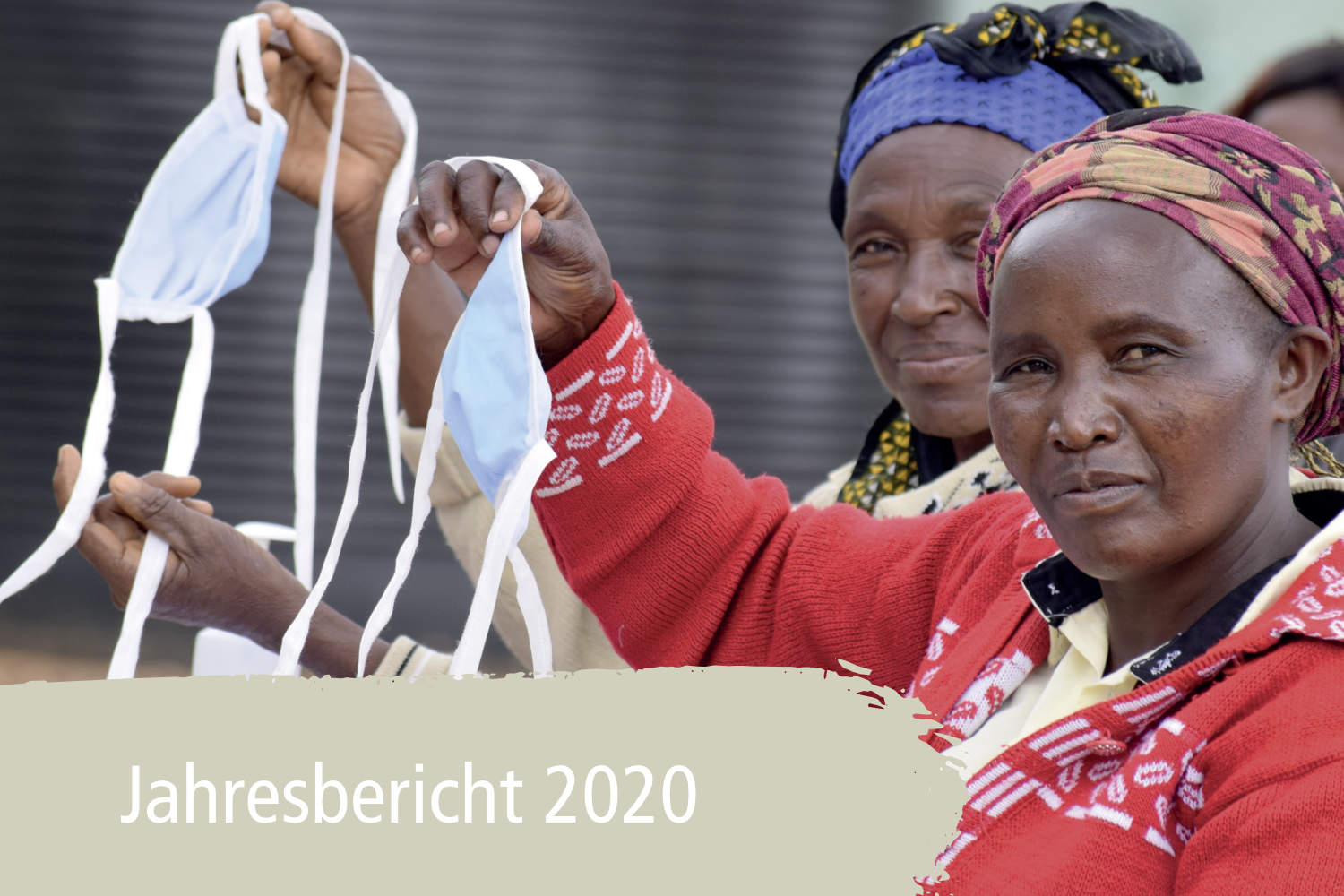The Covid 19 pandemic and its consequences were the defining issues in 2020 - also in the work of the humanitarian organisation arche noVa from Dresden. The importance of arche noVa's main focus, water, sanitation and hygiene education (WASH), became particularly clear during the pandemic.
"In many countries, arche noVa was able to initiate immediate measures to contain the virus. These included, in particular, education and hygiene campaigns and additional WASH activities",
says Katja Laudemann, Head of International Programmes at arche noVa. By increasing and adapting the current project content, it was possible to "make an important contribution to covid 19 prevention in our project regions".
Cooperation at eye level pays off
This was made possible not least by increased localisation and advances in digitalisation. "Once again, it paid off that we work closely with local organisations and are present on the ground with local teams," says Katja Laudemann. In addition, she says, digitalisation has opened previously closed doors. Thanks to the move of events to the digital, the circle of participants has been expanded and has opened up in particular for interested people from the Global South, who previously could not participate in many conferences due to language barriers, long journeys or high costs. "arche noVa expressly welcomes this development," emphasises the head of the foreign programme.
arche noVa with growth in turnover
Despite the pandemic-related restrictions, all projects could be implemented - even if often in an adapted form. The balance sheet is impressive: In 2020, arche noVa was active on three continents and implemented more than 30 projects in 14 countries - either with its own office on site or with one of the more than 20 local partner organisations. Even though the amount of donations was slightly lower than in the previous year with 1.3 million Euros, the total turnover could be increased due to other donations. With 14.9 million euros, the largest part of this went to foreign work (13.8 million euros). Almost 570,000 euros were spent on educational work in Germany and general administration, advertising and public relations work accounted for 518,000 euros, which corresponds to a share of 3.48 percent of total expenditure and a slight decrease compared to the previous year.
Consequences of the pandemic and increasing crises cause concern
Even though arche noVa as an organisation has a structurally stable foundation and has been able to achieve sustainable improvements in the project regions, future developments give cause for concern. Katja Laudemann, for example, points to pandemic-related social upheavals:
"Jobs were lost, people fell into existential hardship, women and girls became victims of sexual violence in the domestic sphere, and children could no longer go to school, where before they not only received lessons but also school meals."
As a result, many global advances in poverty reduction, food security, education and gender justice of the past decades have been lost or are still at risk.
More decisive action against climate crisis necessary
Mathias Anderson, Executive Director of arche noVa, also points to the many crises worldwide that are not in the media spotlight.
"Especially in the countries where we have been providing humanitarian aid for several years, the pandemic was only one of many problems that make people's lives more difficult. Also, climate change continues to advance and, just like the virus, affects the most vulnerable people the most",
says Anderson. He calls on politicians in Glasgow and Berlin to place the 2030 Agenda and the SDGs even more strongly at the centre of their own actions: "We need to find ways for responsible coexistence both at the very local level and at the global level," says Anderson.
The 2020 annual report (in German) can be downloaded in PDF format here.













